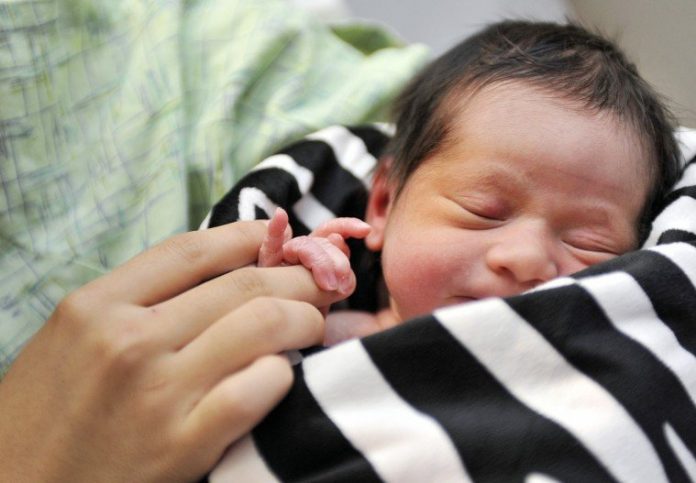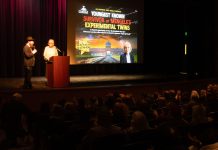A few years ago a days-old Gilroy infant, cold and gasping, was rushed to a San Jose emergency room. The ailment turned out to be a congenital heart defect that could easily have been diagnosed at birth.
Saint Louise Regional Hospital neonatologist Bilaji Govindasawami heard about the frantic incident through a colleague and made it her mission to ensure that every baby born at her hospital would get cleared for heart health before heading home.
“We were screening for that type of condition up at the Santa Clara Valley Regional Medical Center at the time,” said the doctor, a pediatrician for more than two decades. “And when I heard about this, I thought, well, this wouldn’t have happened if we had been doing that here, too. It gave us a sense of urgency about the whole thing.”
Now, thanks to a simple technology introduced to the nonprofit Gilroy hospital this year, no newborn will get discharged without being tested for heart health.
“This screening can save lives,” said Louise Fry, a registered nurse and head of Maternal Child Health at St. Louise.
The test is so quick and painless it will probably go unnoticed by most parents, Fry said. A couple wires – one taped to the right hand, the other to a foot – measure oxygen levels of the blood pumped into and out of the heart. They call it called pre-ductal and post-ductal screening and it catches congenital heart problems that even highly trained pediatric cardiologists might miss.
About 60 babies a month are delivered at St. Louise, the hospital says. Each one will now undergo the pre- and post-ductal screenings in their first day of life.
“It’s such a huge victory for babies,” Govindasawami said. “Before, they would have delayed diagnosis, sometimes even a doctor would think, ‘Oh the kid has a cold.’ Now we can be certain to catch this early on.”
The technology itself is catching on across the nation, even prompting legislators to make a legal standard in some states. In California, it’s not mandatory. But with about 30 infants a year dying from preventable heart failure statewide – one in 2,000, according to the California Department of Public Health – the screening could become the legal bare minimum in the near future, Fry predicts.
Heart disease is the most common congenital disorder among infants, according to the Centers for Disease Control. Nationwide, about 40,000 infants are born with a heart defect each year, the CDC says. And among those diagnosed with it, about a quarter will fall into critical condition requiring surgery or catheter-based intervention in their first year of life, according to St. Louise spokeswoman Jasmine Nguyen.
That’s what makes early detection so vital, Fry noted.
United States Secretary of Health and Human Services Kathleen Sibelius recently endorsed the heart screening, urging hospitals to standardize it and lawmakers to eventually require it. Various pediatric health organizations echoed that approval.
St. Louise is somewhat of a pioneer in this, Fry said, because normally much larger hospitals lead the way in terms of technology. And though Kaiser and some other medical giants have started to adopt the method, Fry said she’s proud that a smaller regional medical center like her employer has taken the initiative to incorporate the new testing as part of its standard healthcare.
Govindasawami agreed, adding that residents in the region can rest assured about their babies’ heart health because even if some defect is spotted, it’s caught early and treated early.
“I’m tired of seeing sick babies with missed diagnoses,” she said. “This is another step to improving the quality of our care for the community.”















